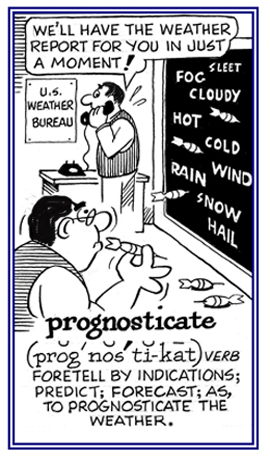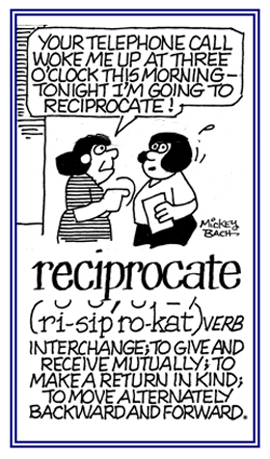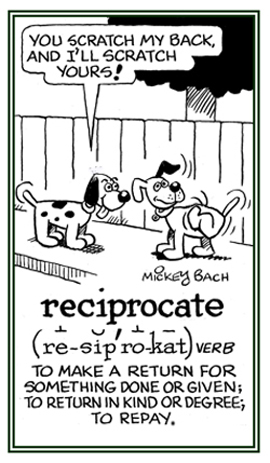-cate
(This suffix has no etymological source; it is just a part of other words.)
Sam and his family were amazed at how quickly their new house was erected after it was delivered from the factory that had prefabricated it.
One company prefabricated separate pieces for tables and other furniture so the buyers could set them up in their homes quickly and without any problems.
2. To avoid giving a direct and honest answer or opinion, or a clear and truthful account of a situation, especially by quibbling or being deliberately ambiguous or misleading: When anyone prevaricates, he or she is avoiding telling the truth or is not providing the real facts.
3. To stray from or to evade the truth; to equivocate: As a witness under oath, Bert didn't prevaricate but he answered all of the questions honestly.
4. Etymology: from Latin prevaricate, "to walk crookedly" from varus, "knock-kneed"; from this the verb varicare, "straddle" was combined with the prefix prae-, "before, beyond" which produced praevaricari, "to walk crookedly" or "to deviate from straightforward behavior" and "to turn away from the truth".

Go to this Word A Day Revisited Index
so you can see more of Mickey Bach's cartoons.
2. An indication of the future result of something: Jane’s headache was hurting her and she couldn’t breathe so her doctor prognosticated that her influenza would last for quite sometime.
3. To forecast or to predict something from present indications or signs; to prophesy: The weather forecast is prognosticated to be clear and sunny for the next few days.
4. Something that presages: When people see birds appearing at the end of winter, they are believed to prognosticate that spring is coming.
5. To predict according to present conditions or signs; to foretell: There is urban renewal that currently prognosticates a social and cultural renovation for the city.
Instead of using the verb prognosticate all the time in his essay, Jim used synonyms like "to foreshadow" and "to portend”, which made his composition more interesting.

Go to this Word A Day Revisited Index
so you can see more of Mickey Bach's cartoons.
2. To multiply by four: Ted's supervisor told the committee that they must quadruplicate their efforts in order to complete the assignment on time.
2. To establish firmly: Jerome was able to radicate his memory for his autobiography by keeping diaries over the years.
3. Etymology: from Latin radicare or radicari, "to take root".
After the school trip was canceled because of the tornadoes, the money was reallocated to pay for the cost of a different trip at a time when things were more normal.
Anyone who reciprocates is returning the same kind of treatment that another person has done to him or to her, whether it is good or bad.
2. To interchange; each person or group giving or doing to the other the same thing; to give, to feel, etc., in return: Alice loved her daughter Lucy very much, and this love was certainly reciprocated by Lucy towards her mother as well.3. Etymology: from Latin reciprocare "to move back" and "forth"; from re-, "backward" + pro, "forward" + -cate, "normally a verb ending".


Go to this Word A Day Revisited Index
so you can see more of Mickey Bach's cartoons.
2. To commit one's life to achieving special objectives over and over: Doris rededicates her life everyday to provide a better understanding of vocabulary entries so more words can be comprehended by users; especially, students who fail to find such information available in most dictionaries.
The phrase in a music composition is repeated or reduplicated quite often and the listener can usually recognize it each time.
2. To reproduce an element of a word precisely or with a small change: Monika reduplicated some linguistic elements of words to make her short story more interesting and expressive; for example, teeny-weeny, see-saw, and chitchat. 3. To make identical copies of the same thing that has been done previously: The writer of the short autobiography had the printer reduplicate his composition because more people wanted copies than he had anticipated.Because Mr. Johnson had a new job in Boston, the family had to relocate to the new city and buy a house.
2. To become established in a new area: Because his firm was relocated to the West, the Lawson family had to move to Los Angeles so the father could continue his employment with the company.

